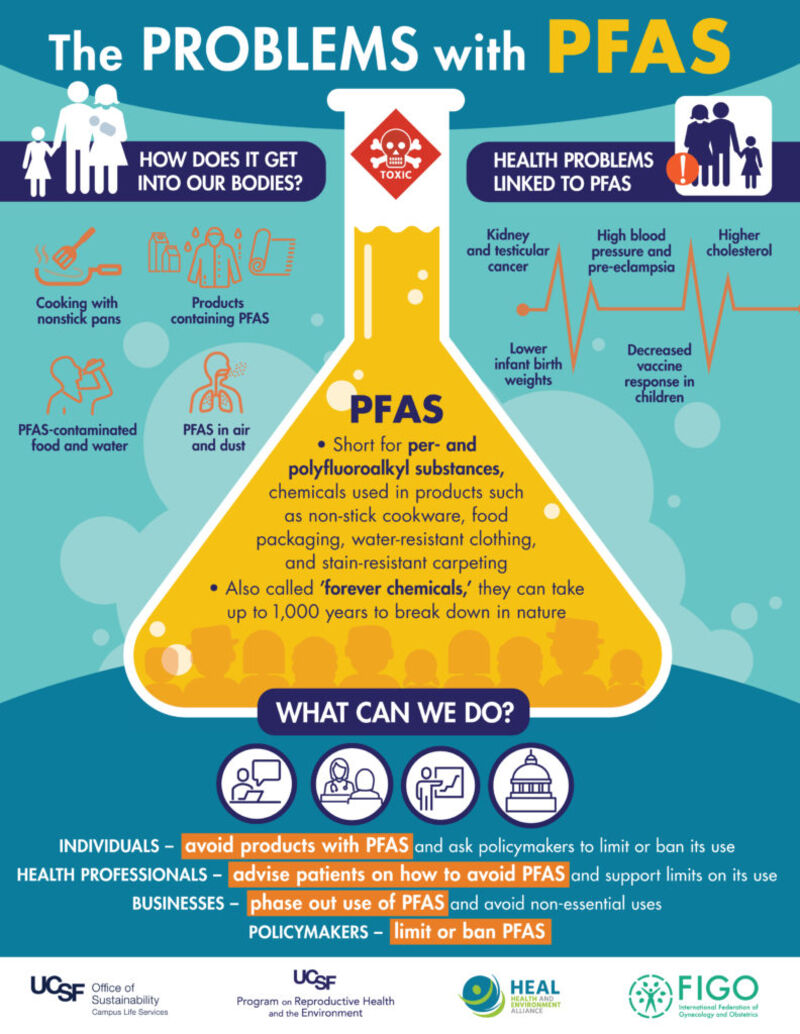Over the past few years, you’ve no doubt heard of the expansive PFAS problem contaminating our drinking water and surface waters in Wisconsin and throughout the country. But what exactly are PFAS, and what is being done to address this crisis facing the future of our precious drinking water? Having safe and clean drinking water is a fundamental right and we must do everything possible to solve this immediately.
Per- and Polyfluoroalkyl Substances, commonly known as PFAS, have been used in countless industrial applications, from firefighting foams to non-stick cookware.
While they have made our lives more convenient, PFAS are dangerous primarily because they are highly persistent in the environment and in the human body. These "forever chemicals" resist breaking down, leading to their accumulation in soil, water and living organisms. They can disrupt our endocrine systems, harm liver function and potentially cause cancer. Their widespread use in everyday products, such as non-stick cookware and stain-resistant fabrics, means that exposure is all too common, and the health impacts can be severe and long-lasting. The difficulty in removing them from water sources and the human body makes their threat to public health and the environment all the more difficult to address.
In 2023, Governor Evers signed the budget into law including $125 million in funding to remediate PFAS contamination across the state. Republicans and Gov. Evers agreed to set $125 million aside to address PFAS in the budget. However, Republicans now disagree with the Governor and Democrats in the legislature for using the money for testing and keeping polluters accountable. It’s been over a year now and Republicans on the Joint Finance Committee refuse to utilize these funds.
Wisconsin is already behind states like Minnesota and Michigan that have started widespread groundwater PFAS detection. The people of Wisconsin deserve better than to have their health and the environment jeopardized by unchecked industrial pollution and inactive government.
PFAS have already been detected in over 120 communities across the state, impacting approximately 2.5 million Wisconsinites, which is about 42% of the entire state. The DNR has done an excellent job with the authority they have to help municipalities deal with PFAS contaminations. However, without additional state guidance and funding, municipalities are left implementing a patchwork of remediation strategies.
Thankfully, municipalities like the City of Eau Claire have been proactive in protecting our community from PFAS by acting immediately. For instance, the Eau Claire City-County Health Department is currently partnering with researchers from UW-Eau Claire to offer a limited number of free private well water tests for PFAS. Also, the construction of a PFAS removal facility in Eau Claire has finally broken ground and is expected to be completed by 2026.
In the absence of Republican leadership, municipalities like Eau Claire are taking great strides towards safe drinking water in our area. However, these efforts will not be enough for the residents of greater Wisconsin. Why should these other cities be in limbo when there are resources waiting to be dispersed?
Wisconsinites expect our government to prioritize their health and their lives over the special interests of PFAS polluters. Water pollution is not a political discussion, and people should be able to drink a glass of water with no worries about their wellbeing.
The Republicans’ decision to hold crucial funding is dangerous and irresponsible. Their decision affects everyone, from our families to our friends to our children. They need to be held accountable for the damage they are doing and must release the PFAS funds now.
Memberships
Senator Jeff Smith has served in the State Senate since 2019. Senator Smith has worked tirelessly in his community on public education opportunities, health care access and affordability, redistricting reform, protections for water and helping people run for elected office.



Add new comment